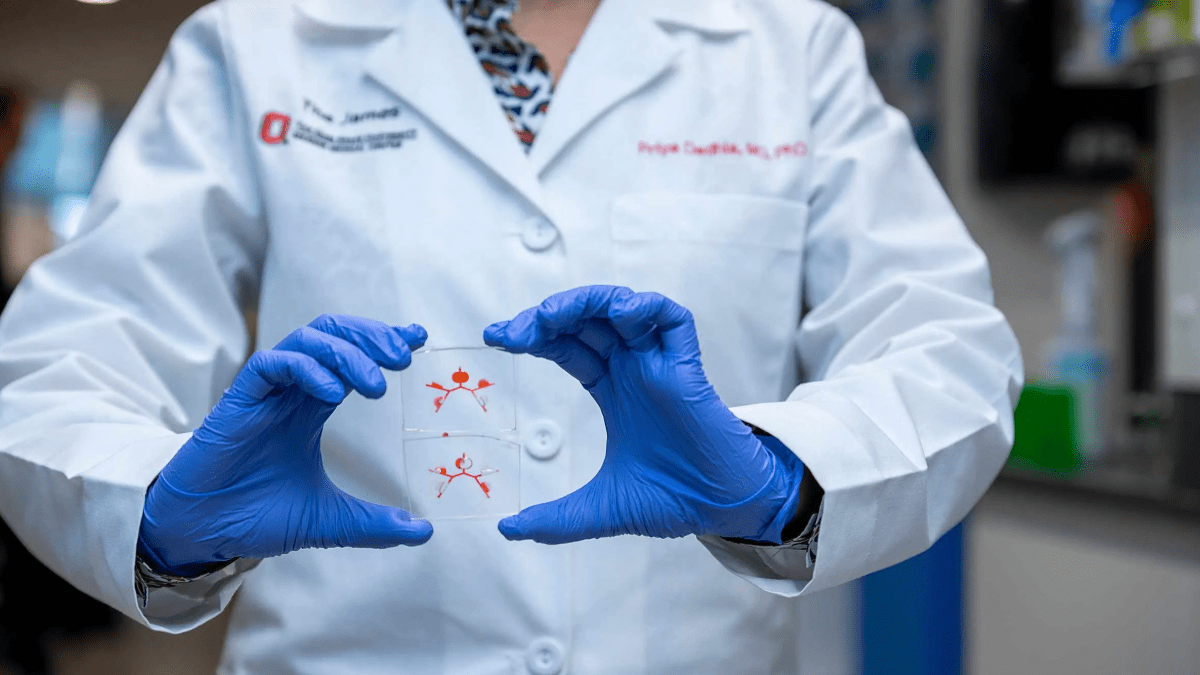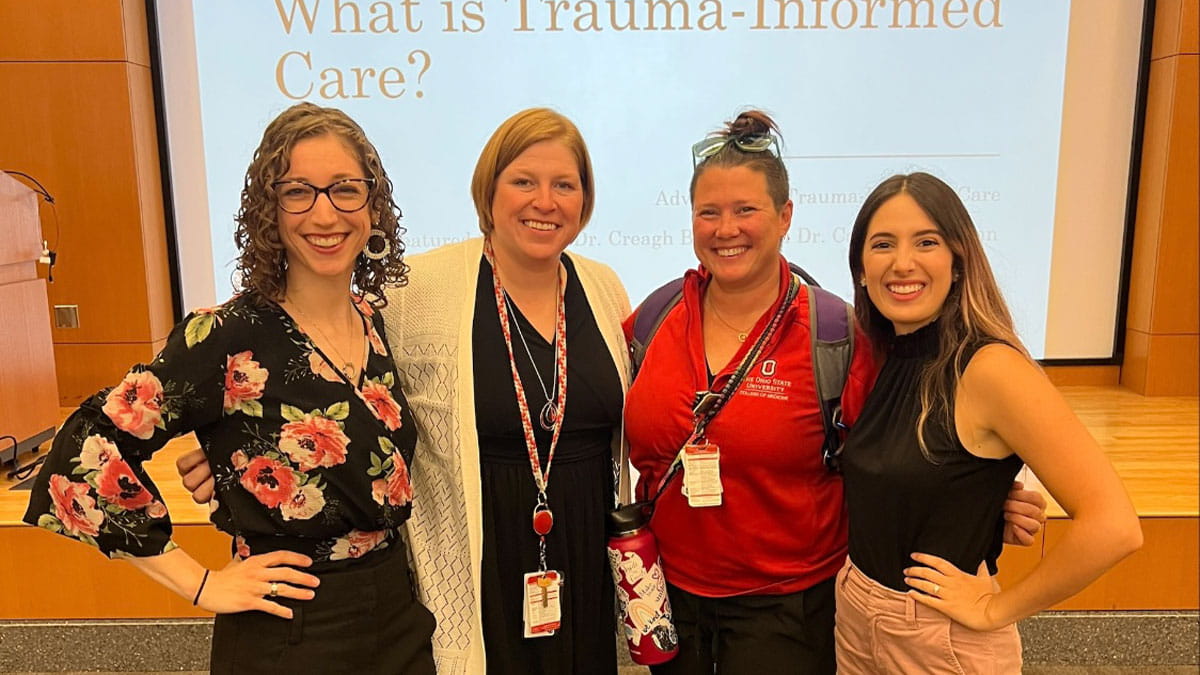Gift from generous donor funds expansion of Transplant Biorepository
Over the past four years, The Ohio State University Wexner Medical Center and College of Medicine have built the infrastructure for a transplant tissue biorepository that helps numerous research teams study the transplantation process and diseases and infections leading to the need for transplantation. Led by director of transplant research operations, Brenda Reader, PhD, MBA, whose dedication and vision laid the groundwork that launched the biorepository in 2017 — the first of its kind at Ohio State.
The vast majority of collected biological samples to date are procured from the Ohio State Comprehensive Transplant Center’s lung transplant program. These include over 200 lung tissue samples from transplant patients and control donor lungs from Lifeline of Ohio as well as 5,500-plus samples of urine, plasma, buffy coats and bronchoalveolar lavage fluid from lung transplant patients pre-transplantation and at various timepoints post-transplantation.
“Access to these high-quality, clinically annotated human samples enabled several Ohio State researchers to obtain funding from the National Institutes of Health and U.S. Department of Defense,” explains Dr. Reader, “as well as partner with commercial entities to further transplantation research.” While the transplant center invested in the creation of the transplant biorepository, it has been largely self-supported and cost-neutral by collecting small fees for processing normal donor and diseased patient organs and for distributed samples.
Recently, an anonymous donor gifted $725,000 to the transplant biorepository to study the initiation, detection and resolution of infectious diseases among the abdominal transplant population. The bioinformatics team, led by Tim Huerta, PhD, MS, has also received a separate gift from this same donor to create a data infrastructure to support the biorepository.
“These gifts afford us an amazing opportunity to hire an additional lab technician and clinical research staff to expand beyond lung transplant samples to include kidney and liver transplant patients,” says Kenneth Washburn, MD, professor of Surgery at the Ohio State College of Medicine and executive director of Ohio State’s Comprehensive Transplant Center. “It will drive new studies of infectious disease and vaccine responses in immunocompromised individuals.”
The expansion also enables clinical staff to broaden collection efforts to engage more kidney and liver transplant patients in the abdominal transplant clinic and obtain their consent to participate in the Total Transplant Care Protocol (TTCP). TTCP is the Institutional Review Board-approved protocol of the biorepository. As the consented patients progress to transplantation, the clinical research staff will work to obtain samples such as saliva, urine and blood to add to the biorepository’s collection.
The second portion of the philanthropic gift will be used to support PARTNER, an ongoing enterprisewide bioinformatics project aimed at democratizing health-related data. PARTNER seeks to reduce bureaucracy, and place health-related data, including data associated with biospecimens, at the fingertips of our researchers. PARTNER integrates many existing data “islands” throughout Ohio State, including the transplant biorepository. PARTNER will become a centralized framework for accessing available data and provide bioinformatics tools that facilitate rigorous and holistic inquiry.
Eugene Oltz, PhD, professor and chair in the Department of Microbial Infection and Immunity at the Ohio State College of Medicine, says the scientific opportunities created through the expansion will trigger translational discoveries across many fields and drive advances in treatment and care of patients with infectious diseases.
“Our biorepository is truly a unique effort,” says Dr. Oltz. “It will continue to elevate our research efforts and expand our ability to help patients.”
To obtain samples or for more information, contact Brenda.Reader@osumc.edu.



